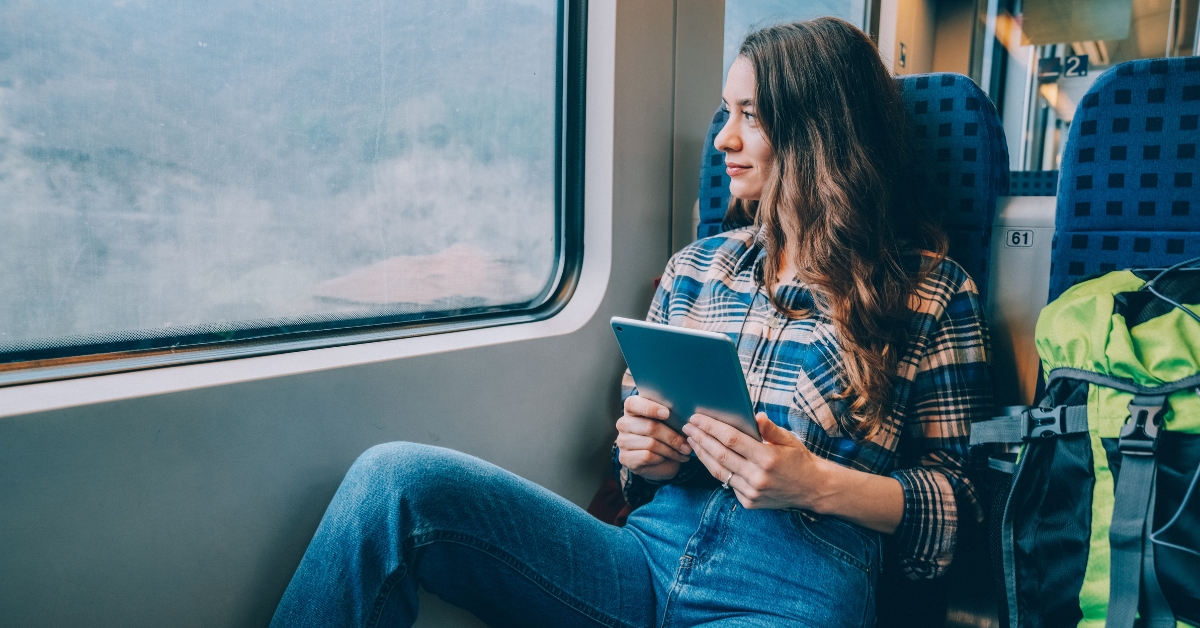Solo travel is often portrayed as an adventure of a lifetime, but the reality is different. From safety risks to loneliness, here is what solo travellers should know.
Table of Contents
Solo Travel’s Hidden Challenges: The Untold Reality Behind the Trend
In recent years, solo travel has been glorified on social media platforms, inspiring countless individuals to pack their bags and embark on independent adventures.
Images of breathtaking landscapes, cultural immersions, and personal growth flood travel blogs and Instagram feeds, painting an enticing picture of the solo traveller’s journey.
However, beneath the surface of these picturesque experiences lies an often-overlooked reality.
Solo travel is not always as dreamy as it appears.
It presents unique challenges, ranging from safety risks to financial burdens, that can turn an exciting trip into a challenging experience.
As more people embrace the idea of travelling alone, it is essential to acknowledge the obstacles that come with it and prepare for them accordingly.
1. The Reality of Loneliness on the Road
One of the biggest challenges of solo travel is loneliness.
While exploring a destination alone may sound liberating, long periods without familiar company can lead to feelings of isolation.
Quiet evenings in a foreign country, dining alone, and navigating unfamiliar streets without companionship can sometimes feel daunting rather than exhilarating.
Travel experts suggest that solo travellers combat loneliness by staying in hostels, joining group tours, or using social networking apps designed for travellers.
Engaging in cultural experiences and local activities can also help build connections with locals and fellow travellers.
2. Safety Risks and Security Concerns
Solo travellers, particularly women, face increased safety risks. Being alone in an unfamiliar environment can make travellers more vulnerable to scams, theft, and harassment.
Reports have shown that criminals frequently target solo travellers due to their perceived vulnerability.
Travel experts recommend thorough research before visiting a destination to minimize risks.
Choosing well-reviewed accommodations, avoiding isolated areas at night, and staying in touch with trusted contacts can significantly enhance safety.
Additionally, having a backup plan and emergency contacts readily available can help in case of unexpected incidents.
3. The Burden of Making Every Decision Alone
Solo travel means complete independence, but it also comes with the pressure of making decisions alone.
From selecting accommodations to planning daily itineraries, the responsibility falls entirely on the traveller.
This constant need for decision-making can lead to mental exhaustion, commonly known as “decision fatigue.”
Solo travellers can plan key aspects of their trip to reduce stress while leaving room for spontaneity.
Using travel apps, seeking local recommendations, and following well-structured itineraries can make the journey smoother.
4. Not Every Destination is Solo-Friendly
Some destinations are more accommodating to solo travellers than others.
While cities like Tokyo, Amsterdam, and Bangkok are known for their solo-friendly environment, other locations may present challenges such as poor public transport, high crime rates, or a lack of budget accommodations.
Before booking a trip, solo travellers should research the safety, accessibility, and solo travel culture of their chosen destination.
Consulting travel advisories and reading other solo travellers’ personal experiences can help make informed decisions.
5. The Struggles of Falling Ill Alone
Health emergencies can be particularly distressing for solo travellers.
Whether it is food poisoning, an injury, or an unexpected illness, navigating foreign healthcare systems alone can be overwhelming, especially in countries with language barriers or limited medical facilities.
To prepare for such situations, solo travellers should carry a basic medical kit, invest in comprehensive travel insurance, and keep a list of emergency contacts, including local hospitals and embassies.
Learning basic medical phrases in the local language can also be helpful.
6. The Financial Burden of Traveling Alone
Solo travel often comes with higher expenses.
Unlike group travellers who can split accommodation, transportation, and meal costs, solo adventurers bear the entire financial burden.
Many guided tours and excursions also impose additional fees for single participants, making the trip more expensive.
Solo travellers can manage costs by staying in hostels, using public transportation, and visiting free attractions.
Booking accommodations with kitchen facilities can also reduce food expenses by allowing travellers to cook meals.
7. Unexpected Homesickness
No matter how exciting the journey, missing home is inevitable.
Special occasions, birthdays, and festivals can amplify feelings of homesickness, making travellers long for familiar comforts.
Staying connected with loved ones through regular video calls and carrying sentimental items from home can provide emotional support during these moments.
Journaling or documenting the trip can also help solo travellers process their experiences and stay mentally engaged.
8. The Risk of Travel Scams
Solo travellers are often targeted by scammers who prey on tourists unfamiliar with local customs.
From overpriced taxis to misleading tour operators, scams can quickly turn an enjoyable trip into a stressful ordeal.
To avoid falling victim, travellers should research common scams in their destination, remain cautious of overly friendly strangers, and always verify prices before purchasing.
Using trusted travel resources and local recommendations can also help you navigate unfamiliar surroundings safely.
9. Handling Unexpected Emergencies Alone
Lost passports, missed flights, or sudden financial issues can be particularly overwhelming when no travel companion can assist.
Dealing with such situations alone requires quick problem-solving skills and thorough preparation.
Solo travellers should always keep digital and physical copies of important documents, carry backup funds in multiple forms, and be clear about their destination’s emergency services and embassy locations.
10. The Challenge of Returning to Routine Life
One lesser-discussed aspect of solo travel is the difficulty of returning to everyday life.
After weeks or months of adventure, coming home to a structured routine can feel underwhelming.
Many solo travellers experience post-travel blues, struggling to adjust to regular work schedules and social dynamics.
To ease this transition, travellers can document their journeys through blogs, social media, or personal diaries.
Engaging in new hobbies inspired by their travels or planning future trips can also help maintain the excitement and motivation gained from their experiences.
Conclusion: Solo Travel is Rewarding but Requires Preparation
Despite its challenges, solo travel remains an enriching experience that offers personal growth, independence, and unique cultural encounters.
However, travellers must acknowledge the hidden struggles that come with it and take the necessary precautions to ensure a safe and enjoyable journey.
By staying informed, planning strategically, and maintaining awareness, solo travellers can navigate potential difficulties, maximize their adventures, and minimize risks.






